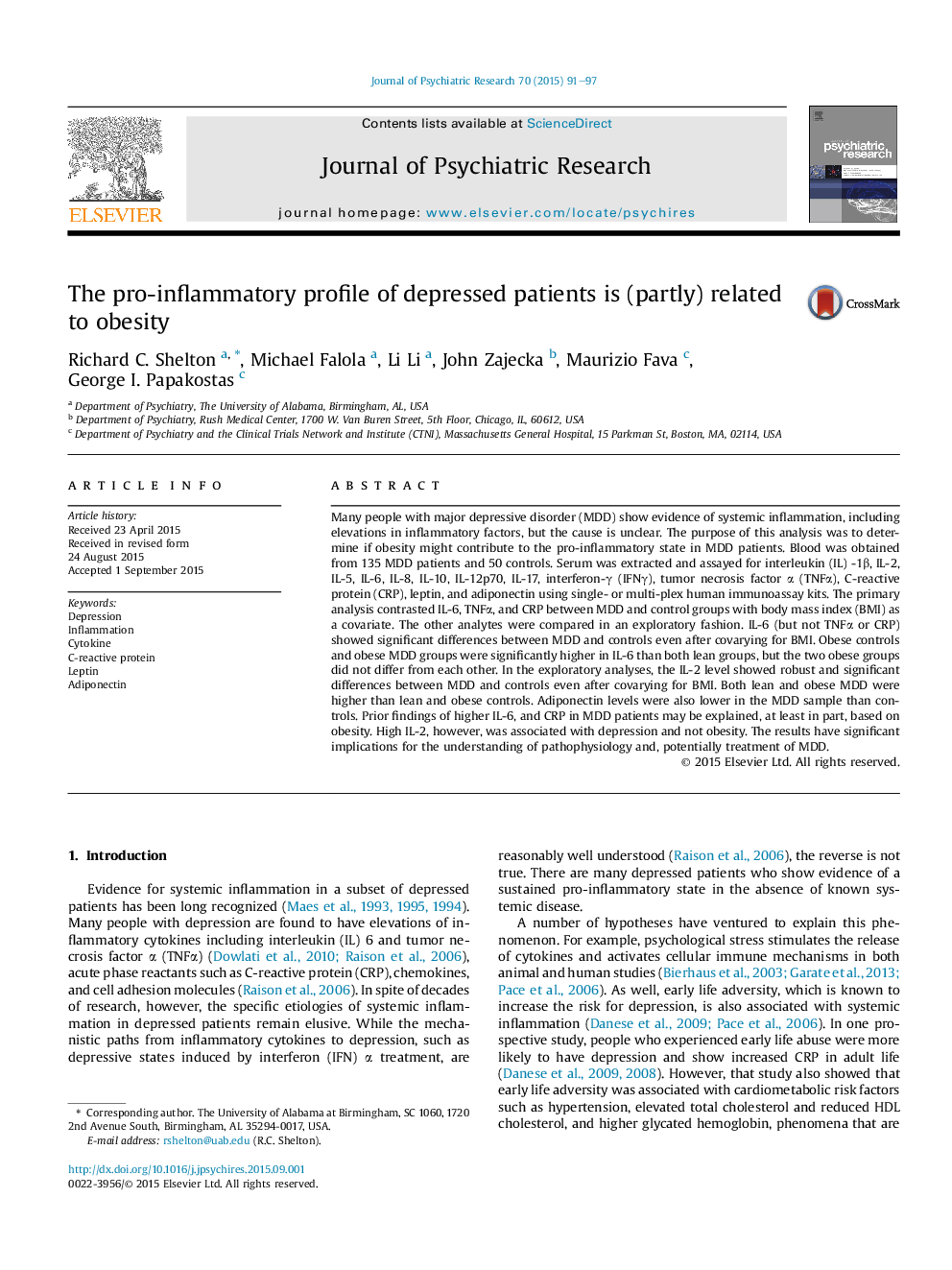| Article ID | Journal | Published Year | Pages | File Type |
|---|---|---|---|---|
| 327877 | Journal of Psychiatric Research | 2015 | 7 Pages |
•Some people with depression have systemic inflammation without known cause.•We hypothesized that obesity may account for this inflammation, at least in part.•IL-6 was elevated in depressed patients with significant effects for both group and BMI.•Obese MDD patients had higher IL-6 than non-obese MDD and controls, but not obese controls.•TNFα and CRP show significant effects for BMI only but not group.
Many people with major depressive disorder (MDD) show evidence of systemic inflammation, including elevations in inflammatory factors, but the cause is unclear. The purpose of this analysis was to determine if obesity might contribute to the pro-inflammatory state in MDD patients. Blood was obtained from 135 MDD patients and 50 controls. Serum was extracted and assayed for interleukin (IL) -1β, IL-2, IL-5, IL-6, IL-8, IL-10, IL-12p70, IL-17, interferon-γ (IFNγ), tumor necrosis factor α (TNFα), C-reactive protein (CRP), leptin, and adiponectin using single- or multi-plex human immunoassay kits. The primary analysis contrasted IL-6, TNFα, and CRP between MDD and control groups with body mass index (BMI) as a covariate. The other analytes were compared in an exploratory fashion. IL-6 (but not TNFα or CRP) showed significant differences between MDD and controls even after covarying for BMI. Obese controls and obese MDD groups were significantly higher in IL-6 than both lean groups, but the two obese groups did not differ from each other. In the exploratory analyses, the IL-2 level showed robust and significant differences between MDD and controls even after covarying for BMI. Both lean and obese MDD were higher than lean and obese controls. Adiponectin levels were also lower in the MDD sample than controls. Prior findings of higher IL-6, and CRP in MDD patients may be explained, at least in part, based on obesity. High IL-2, however, was associated with depression and not obesity. The results have significant implications for the understanding of pathophysiology and, potentially treatment of MDD.
Graphical abstractFigure optionsDownload full-size imageDownload as PowerPoint slide
